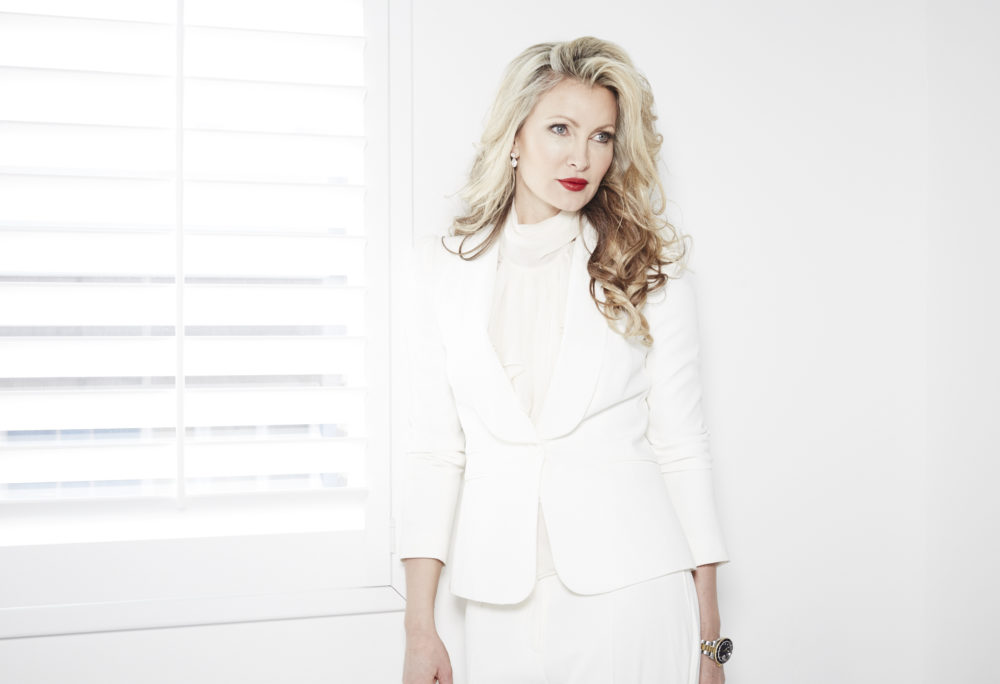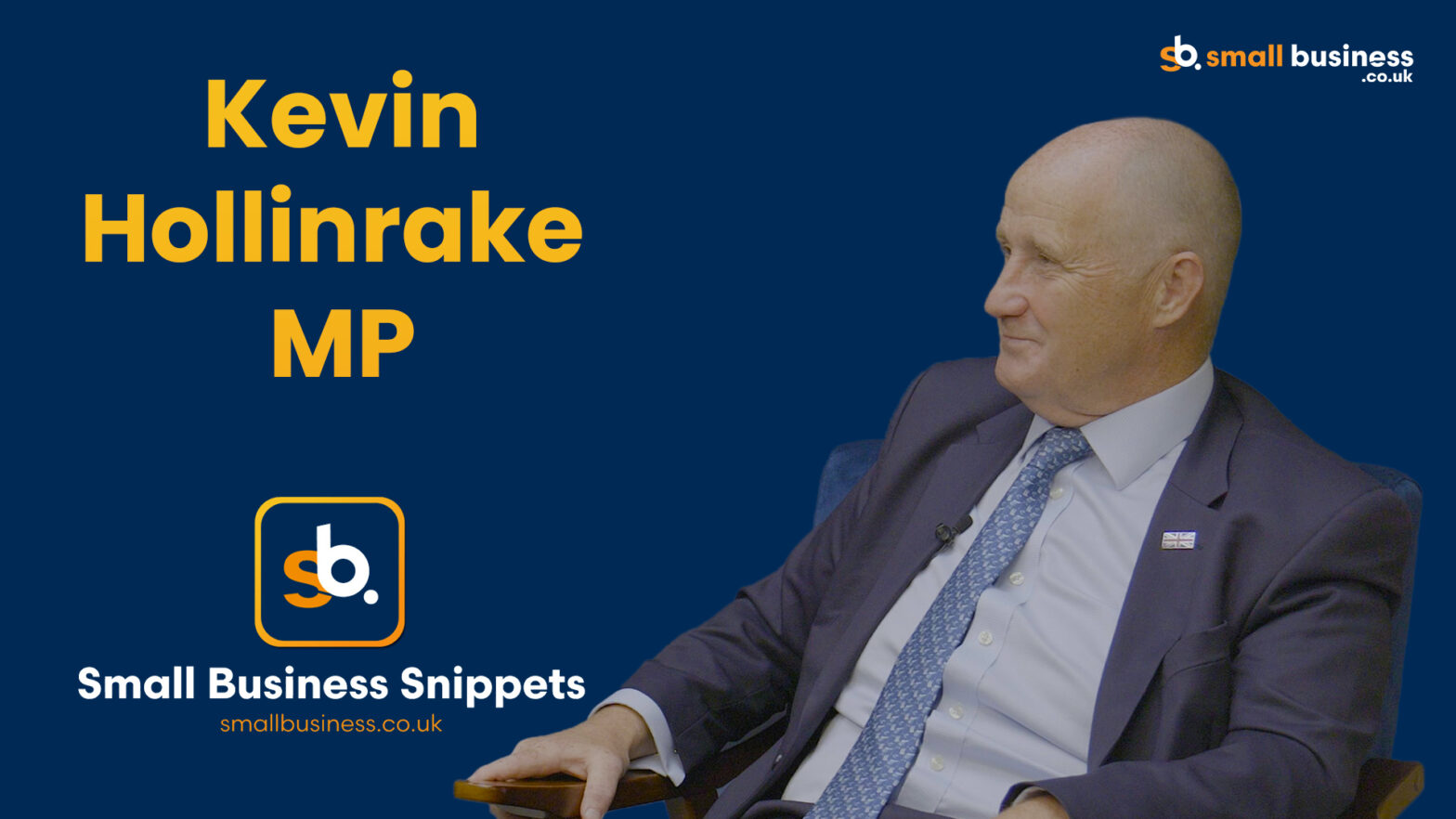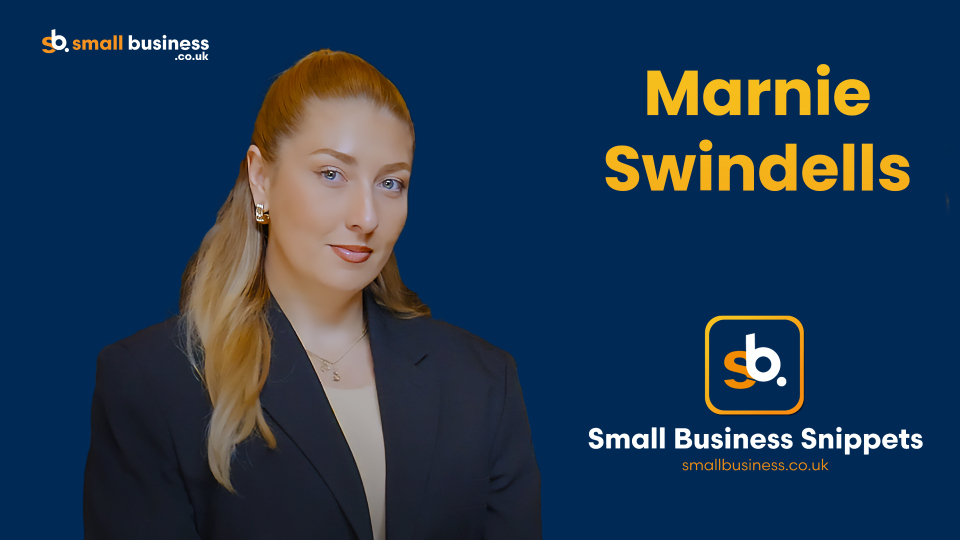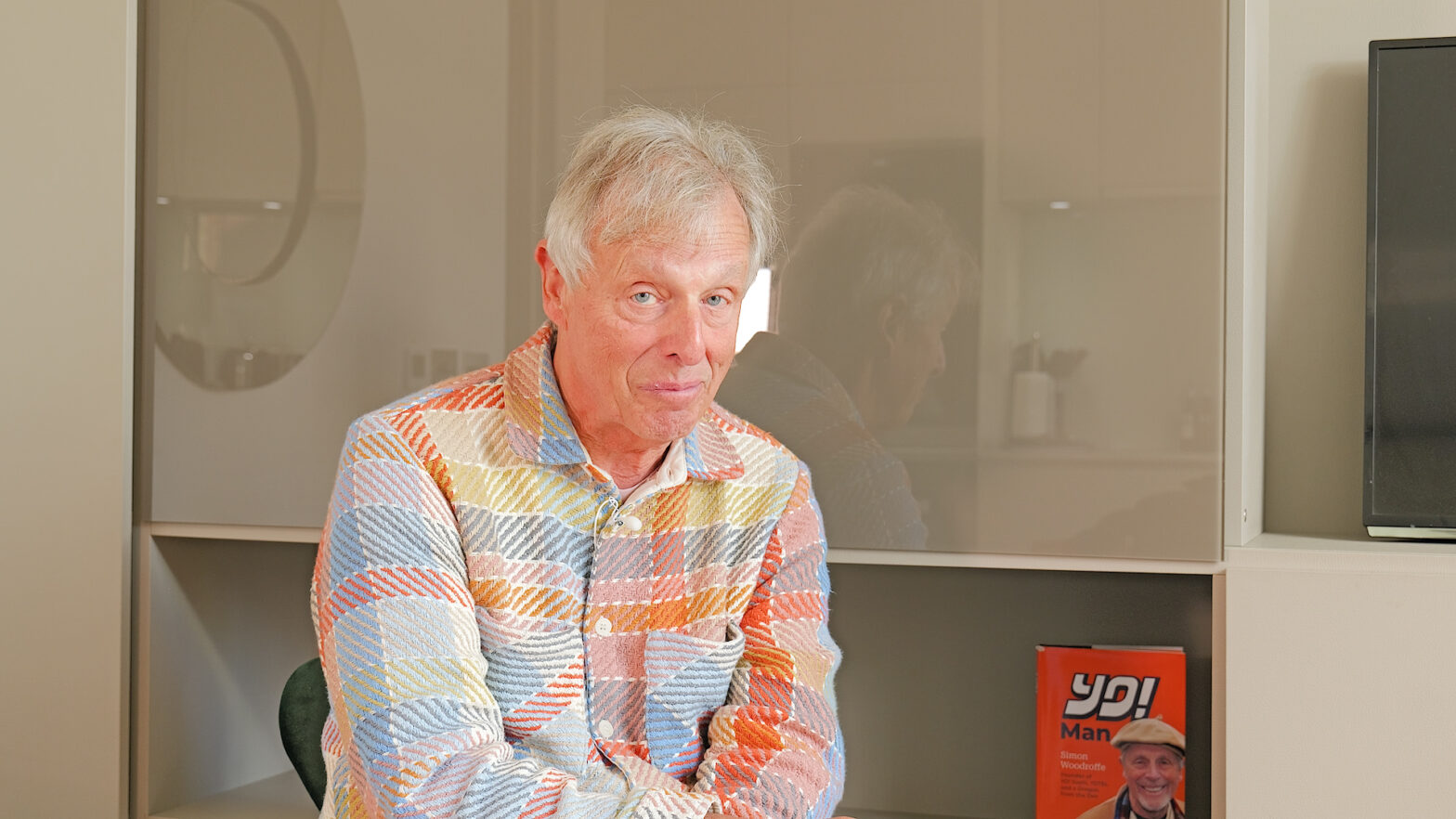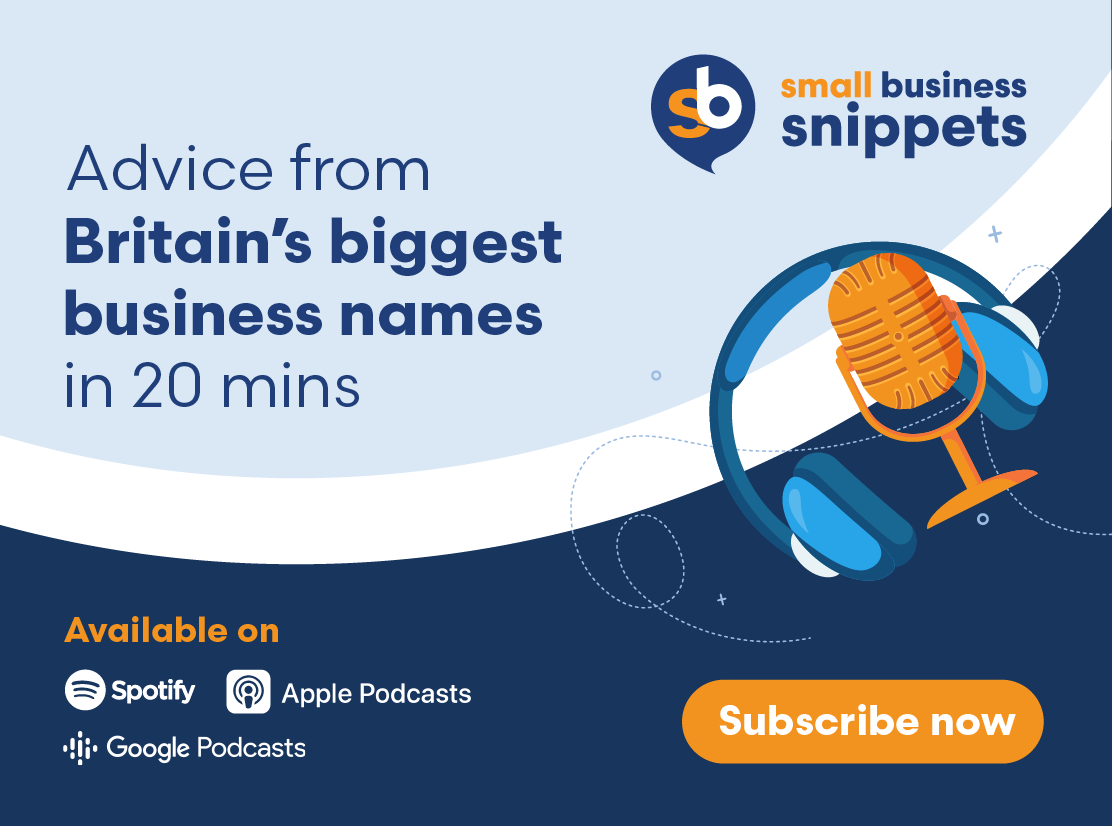Welcome to the second series of Small Business Snippets, the podcast from SmallBusiness.co.uk.
In this episode, Anna Jordan chats to Caprice, a supermodel turned entrepreneur. She tells us more about the struggles of the model stereotype in starting her first business and protecting your brand when you enter a licence deal.
You can also listen to it here
We’ve also got podcast episodes from the first series looking at:
- How one business owner’s mental breakdown caused her to see trolls from her past
- How one entrepreneur hired a videographer to track their every move and build their business brand
- How funding a business led one entrepreneur to stress-related alopecia
- One entrepreneur’s first professional public speaking engagement
- Adapting to UK life and learning English before starting a business
- Securing seed funding
- Finding the perfect head of customer care
- Reaching a £1 million annual rate of return
- Boosting client numbers from 30 to 850
- Starting a brand new business from scratch
To find out more about Small Business Snippets, you can download the trailer.
If you want to listen to the podcast elsewhere, it’s available on iTunes, Google Play, SoundCloud and Spotify.
Be sure to visit SmallBusiness.co.uk for more articles about starting a company and Government funding for small businesses.
Remember to like us on Facebook @SmallBusinessExperts and follow us on Twitter @smallbusinessuk, all lower case.
Fancy reading the podcast interview instead? Here’s the transcript
Hello and welcome to Small Business Snippets, the podcast from SmallBusiness.co.uk. I’m your host, Anna Jordan.
Today we have Caprice Bourret, a former model turned businesswoman. You might recognise her from the front covers of Vogue and Esquire or from her appearance on Channel 4’s The Jump in 2017. She’s here to talk about moving into the business world and the experiences that came with launching her lingerie brand, By Caprice and her homeware range, By Caprice Home.
Anna: Hi, Caprice.
Caprice: Good morning!
Anna: How are you?
Caprice: I’m…OK.
Anna: Nice. Right, let’s crack on.
When you retired from modelling you were well-known and then you moved into the business world where you were relatively less well-known. How did you rebuild your reputation in another field?
Caprice: That took quite a few years. I’m not going to paint a beautiful picture because it wasn’t. The stereotype was quite severe. I didn’t think it would be that difficult coming from being a well-known model to having credibility in the business world was difficult. But it took a lot of tenacity and I had to ascertain stockists.
So, I would call up and go directly to the CEO and try it that way because with buyers I was a bit chopped liver, regardless of who I was, so I went to the CEOs. I said, “Listen, I’ve got this great idea and this great brand”, ba ba ba. And most of them – you know, when you invest in a new brand, you’re talking about a massive investment in some regards.
When I started, it was a licence deal so they would invest. I know because I invested at least a half a million into a new brand, so I know it was a hard sale. And then when I started supplying myself, I didn’t have any sales so they just thought, “We’re just not going to invest – we could go with this brand and we know off the bat that we’ll make a quarter of a million in the first drop. Yeah, she gets notoriety and she gets press but we don’t get any sales traction.” So it was really really difficult initially.
The stereotype worked to my advantage in a way because I did get the meetings with the CEOs or the CEOs went to the buyers and said, “Listen, you have to take this meeting.” But then it worked against me because they thought, “Oh, a model. Come on, she’s going to be here one day and out the next. Forget it – we’re not going to make this investment.”
But all I needed was one stockist and I got the one stockist and then I worked at it and the sales were great. Then I went to the other stockists and said, “Listen, you can stereotype all you want but I got the sales.” So, I had to be very patient and in business it’s hard. Every time you fall down you’ve got to get back up and if you think you’re not going to fall down, then shame on you, because it happens. The ones that are successful are the ones who keep getting back up.
You must have thought about branding yourself before you retired from modelling and building it up slowly. How did you start that when you were still modelling?
Caprice: Welp, I have to tell you that when you’re in the modelling business – and not only the modelling business but when you have some notoriety behind that and you become sort of a household name – you start to believe your own bullsh*t, I have to tell you.
It’s fantastic on the ego but you don’t think it’s going to end, ever. But for some reason – I think because I know what it’s like to not have enough money to eat – I know what it’s like to be really really down and out, from nothing. When I was 18, my mom said, “See ya, good luck, write me a postcard!” I had no money, it was hard.
When I started building my career, it makes you a different person: it makes you a grafter, it makes you hungry, it makes you smarter. So, I knew that the modelling industry would – I was in my 30s and that’s, like, one foot in the grave regardless of how successful you are, so I knew I had to think of Plan B. So, I thought, “What will everyone buy into?” Boom: lingerie. Easy peasy. Right?
So I had to think about that while I was at the top of my game because that’s when I had the power – which I did – and I initially started out with a licence deal because I didn’t know what the hell I was doing, so I let someone else take the risk. I convinced the CEO of Debenhams to do that and he did and that was a smart risk to take because I made them very very rich! Then I took the licence back and started to supply myself.
Let’s talk a bit more about the licensing. You were doing that six-year deal with Debenhams and with By Caprice Home you’ve just done a licence agreement with Sadaqat. They must’ve been totally different experiences.
What kind of tips do you have for entrepreneurs who are going through that licence agreement process for the first time?
Caprice: So, every deal is different. Let me explain what a licence deal is to begin with. I give them my name and they develop my brand and supply it. Boom. You get five to 12pc of sales.
Related: Merchandise and product licensing for small businesses
Now with Debenhams, they had creative control, they basically did everything and all I had to do was say, “OK, that’s pretty, yeah great”. It was pretty straightforward stuff. But with Sadaqat it’s a different kind of deal. I have creative input and control, because my name is much more established and I need to protect my name. So, it’s even more to my advantage to be more intertwined and not just to say, “Here’s my name, go get ‘em, bad boy, let’s do this.”
With the Sadaqat licence deal I had to build my brand first, [they] didn’t just take me on board with this new idea. I was supplying myself for two years – and then I had the power. Then I went to Sadaqat with gold on a tray saying, “Hey, listen, after two years, we’re making money.” And they were like “Oh, oh.” They’re like the Victoria’s Secret of the home world so there were no qualms – they took it.
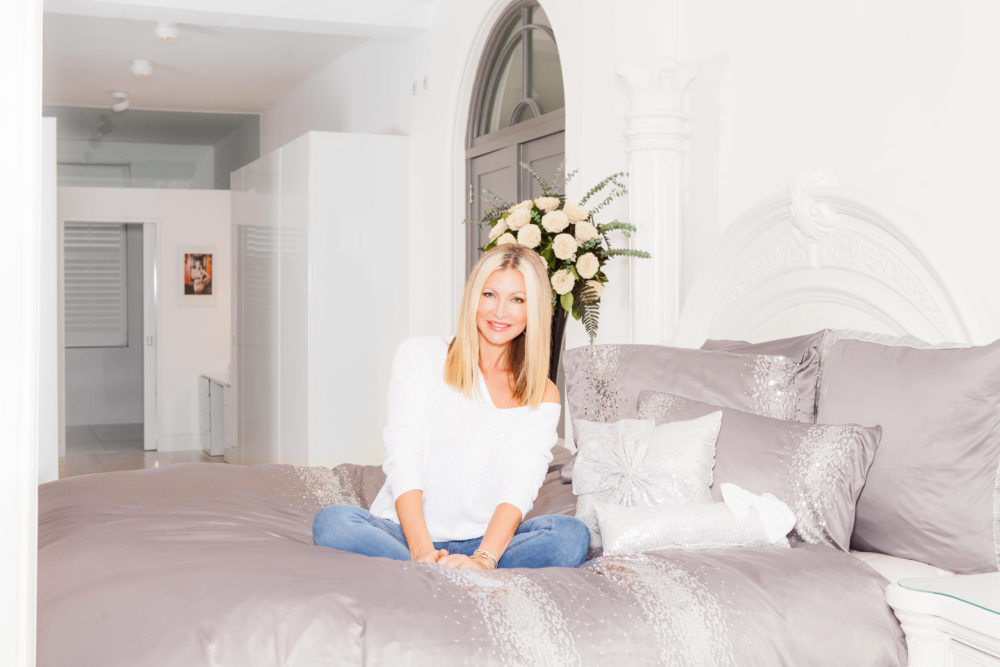
Obviously, the contracts are iron-clad, you have to – but even with the lawyers I’m telling them what to say and what to do. I mean, you’ve got to be careful. You’re lucky if you get a good lawyer and a good standard contract but you even have to tweak the contract. You have to protect yourself, you have to protect your brand because when you enter the corporate world, they don’t have the same passion. They don’t dot their ‘i’s or cross their ‘t’s – they have more money than God.
You know, even though I have a licence deal, I’m very intertwined. Every single stockist I’ve gotten myself – even with Sadaqat – but I have this monster machine. I’m still micro-managing my brand right now. And for me it was really important to go with one of the big boys because now we’re expanding to the world. I just got into Bed, Bath and Beyond, into Macy’s, I’m hoping to sign a deal with this massive conglomerate and they base themselves out of Dubai so I wouldn’t be able to expand the way I’m expanding now [without Sadaqat].
This is another thing in business: you need to know your strengths and your weaknesses. Though some people become very complacent, “Oh we’re making money, we’re making six figures, this is great”, ba ba ba, but you have to keep growing. If you stay stagnant, you will die. And I didn’t have the capability to grow my brand. I needed more people – and even though I was working 12-hour days, I’d just had two babies and they are my priority and they are my business. So, I just couldn’t do it myself and that’s why I went for a licence deal.
Do you feel you were slightly taken advantage because of your lack of business experience in the early days?
Caprice: If you think you’re being taken advantage of then boo-hoo on you! It’s your responsibility to go out there and to learn, so that no one ever takes advantage of you. So I’m never a victim here. I am taking full responsibility for everything that happens in my life and that’s my power and that’s what I recommend to all – especially – I’m all about the women and I’m such a supporter of women in business and women in general. Don’t ever be a victim because a lot of us play that card. Don’t do it – you lose your power. You’re not a victim – you take responsibility and you move forward.
I learned every integral part of my business. I mean, I trained the people who are so-called ‘specialists’. I know how to manage my brand, I know how to market my brand, I know how to negotiate, I know about the factories. I know a lot about production – I don’t know everything about production – but it hasn’t been a detriment to me, not knowing everything about the factories.
But I made it a point to educate myself and I never went to university, I’m a grafter. It’s all about Googling, researching, asking and just doing. Sort of learning from the streets, learning from your mistakes and never making them again.
Has Brexit had any impact on the business?
Caprice: Yes. With the exchange rate – massive. Not so much on me anymore. When I was supplying myself, it killed me. The sterling dropped so tremendously and then obviously sales were impacted. It’s tough, I’m not going to lie. Retail is tough. That’s why I need to expand to the world.
I’ve read that when you started By Caprice that you made underwear and swimwear that you wanted to wear and that went wrong because sales suffered as a result.
Caprice: Oh my God, everyone knows?! I know now that my personal taste, no one else likes. So I will never let my ego get involved again because I lost money. It makes me laugh with corporates, right – they spend hundreds of thousands of pounds on these marketing research groups. Just look at your sales! Look at your weekly sales and understand your customer.
Anna: I understand that you were looking at the sales when you were partnered with Debenhams and that’s how you got ahead and got yourself out of the licence agreement to start supplying yourself.
That’s what I do, every single week. I’m obsessed with sell-through on every single stockist and that’s how I get to know my customers. And you know what? By the way, my customer changes. It used to be so young and I catered to that. Now, maybe because I’m middle-aged, it’s getting slightly older: age 18-42. It used to be 18-30. So I have to cater to that, the designs are different – they’re a little bit more elegant, a little bit more timeless, rather than quirky and fun.
Now we have more celebrity-led products, but you were among the early adopters.
Caprice: I was the first one. I know Elle Macpherson was doing it but only in Australia, she hadn’t come over [to the UK], so I was one of the first ones. That’s why it was so difficult for Terry Green – he was the CEO of Debenhams – to come on-board right away because this was a new concept. It wasn’t tried and tested. He took a big leap and was hailed king of innovation as a result because we sold out in, like, two weeks. This was the initial stages in 2000, I think.
That’s why I initially stopped doing a licence deal with Debenhams because I knew I wouldn’t be the flavour of the moment and they’d dump me. I had to be on top of my game and supply myself to other stockists while my name was hot, while the brand name Caprice was popular – and respected.
How do you think celebrity products have evolved since the early noughties?
Caprice: You know what? It’s saturated. The market is absolutely saturated with celebrity endorsement. I think with some of the celebrities, it works for a year and they’re finished. Then they see who the hot Love Island winner is of that season and then they go with it. With my product it’s different. I actually supplied, I actually paid for the business, I’ve actually become a brand name. I’ve gone past the celebrity endorsement. This is a business.
What kind of difficulties did you face in moving away from Debenhams?
Caprice: The biggest difficulty was that I was risking all my own money. In that first drop I almost lost a quarter of a million. That hurt! And then with the exchange rate – although it impacted me in 2009 – I lost over a million, just in exchange rate. I was so silly. I didn’t understand forwards, I didn’t understand how to buy currencies because remember all my factories were in China, so I was paying for everything in American dollars and then I was getting paid by my stockists in sterling.
So I was constantly exchanging money and I just didn’t understand how to do it properly. I didn’t understand forwards, I didn’t understand how to hedge, I would just buy on-spot. How stupid was that? It went from 2.05 to 1.37 almost overnight. I didn’t understand it so I lost a lot of money, so I never made that mistake again.
Anna: Of course, because you have to wear all the hats, as they say, when you’re a business owner but there are some things you just don’t have a natural knack for.
‘This country encourages small business’
Caprice: No, and you know what I did? I did research and there’s some great, great Government funding and you have to go and research it. And there are people out there who will help you. This country encourages small business. There’s so much help out there – it’s really, really impressive, actually.
Was it a combination of the money you made from modelling plus Government investment?
Caprice: Yeah, it was my savings, which I lost a lot, so I was hurting. Yet my brand was doing really really well. By the way, everyone, I pay all my taxes and I’ve paid a lot of taxes for the last 500 years. I have the right to access this and I was smart enough to do this, otherwise I would’ve lost my business.
Anna: It can be so volatile.
Caprice: Oh, you just don’t know. Not only that, I had to completely readjust my business plan. But thank goodness, one thing that was really important to me was the people who worked for me – I’m quite loyal. So, I wanted that to be the last port of call to get rid of any employees. You’re supporting families, for goodness sakes. So I was fortunate enough to keep my employees but I had to readjust my whole business plan.
What kind of adjustments did you have to make?
Caprice: Well, I had to cut back, even my collections, I had to cut back. I couldn’t take any risk anymore. Before, I was buying a lot of extra stock because I knew the buying patterns of my stockists and my stockists were buying differently. They were much more cautious. And they weren’t buying enough – I knew they weren’t buying enough. So I would take that risk and I would buy deeper at my own risk. I had to stop doing that.
So it did impact because I would run out of stock and that’s not good for a business as well – if you’re selling two months later then you have ‘out of stock’ all over the place, it’s a disaster, but I couldn’t take that risk anymore.
I think for people starting out, understanding cash flow, because normally when you start a business you don’t see a return for three to five years – know that. And passion – you’ve got to be obsessed with what you’re doing because you live it.
Anna: Great. Well, that’s it from me unless there’s anything you’d like to add or any other wisdom.
Caprice: Honey, we killed it – ten times over!
Anna: Ha! Thanks for coming on the show.
You can find out more about Caprice at capricebourret.com. You can also visit SmallBusiness.co.uk for entrepreneur Q&As and other advice to help you start your own business.
Remember to like us on Facebook at SmallBusinessExperts and follow us on Twitter @smallbusinessuk, all lower case.
Until next time, thank you for listening.
